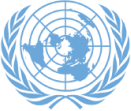Please check against delivery
UNGA High Level Meeting on Ending AIDS
10 June 2016
New York
STATEMENT BY H.E.MR.SUKHBOLD SUKHEE, AMBASSADOR PLENIPOTENTIARY AND EXTRAORDINARY, PERMANENT REPRESENTATIVE OF MONGOLIA TO THE UNITED NATIONS
Mr. President,
Excellencies,
Ladies and Gentlemen,
It is my great honor and privilege to address this very distinguished audience on behalf of the Government of Mongolia. My government highly commends the world coming together as one in the fight to end the AIDS epidemic as a public health threat by 2030, and welcomes this important opportunity to assess the progress made in realizing 10 targets of the 2011 Political Declaration on HIV and AIDS.
The Political Declaration has played a crucial role in scaling-up HIV response in my country. Among them the following results could be underscored:
The Government of Mongolia is successfully fulfilling its commitment of zero vertical transmission of HIV and zero new infections as a result of blood transfusion, made at the UN General Assembly High-Level Meeting on HIV/AIDS in 2011.
Lifesaving antiretroviral treatment is provided to all people living with HIV free of charge.
Measures have been taken to reduce the dependence of the national AIDS response on shrinking donor support. As a result, allocations from the state budget for AIDS response almost doubled in the past 5 years and the procurement of antiretroviral drugs is fully funded from domestic sources.
Legal reform to end policies and practices that reinforce stigmatization and discrimination particularly for people living with HIV and key populations is underway. The Law on Prevention of HIV/AIDS was revised in December 2012, and HIV-related travel restrictions and other discriminatory provisions for people living with HIV have been lifted. The revised Criminal Code, which will come into effect in September this year, has for the first time introduced criminalization of discrimination and offences on the basis of sexual orientation and gender identity.
Mr. President,
Mongolia has been successful in maintaining a low prevalence of HIV infection among the general population. However, the number of reported cases is growing exponentially in the recent past with more than a half of all notified HIV cases being reported in the last 5 years. Modelled projections show that HIV prevalence in Mongolia, in the next 5 years, could triple without an expanded national AIDS response.
There have been no substantial improvements in usage of preservatives among adults and young people in the recent past. Awareness of young adults on HIV infection and prevention among is far below the global targets.
The coverage of HIV prevention programs among key populations has fallen more than twice in the past 5 years due to declining donor support as a result of Mongolia’s transition to an upper middle income country status. This clearly demonstrates that our achievements are very fragile especially in countries like Mongolia which have been recently promoted to a middle-income status and where decrease in development assistance is likely to lead to HIV funding crisis.
The space for domestic investments in AIDS response in middle-income countries is further limited by a growing double disease burden as the prevalence of non-communicable diseases rises more rapidly than infectious diseases including HIV.
Mr. President,
Although the Government of Mongolia has been gradually increasing domestic funding to AIDS response, programs focused on key populations still need more investment, as they are often run by civil society. In other words, it is the community-based programs for key populations that suffer the most as a result of transitioning away from investing in AIDS response in middle-income countries.
Reflecting to this actuality, Mongolia would like to request UNAIDS and other international partners to focus not only on countries, but also on poor and vulnerable groups of population within countries, including middle-income ones. It is the middle-income countries, where an estimated 70 percent of HIV-positive people live, and scaling back development assistance in these countries puts at risk those in greatest need, and jeopardizes our collective progress towards a global vision of zero new HIV infections, zero HIV-related deaths and zero HIV-related discrimination.
Mr. President,
Following the adoption of the Agenda 2030 in which we committed ourselves not to leave no one behind, Mongolia's 2030 Sustainable Development Vision has been launched last April.
In conclusion, I would like reiterate my Government's strong commitment to accelerate the pace of progress made in fighting HIV/AIDS and other communicable diseases and epidemics and to the Political Declaration for the HIV/AIDS.
I thank you for your attention.


